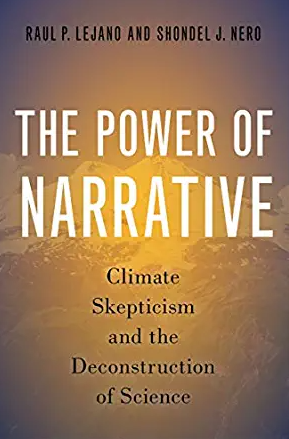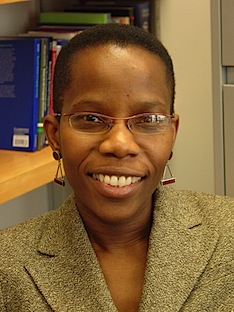
From the Oxford University Press on The Power of Narrative: Climate Skepticism and the Deconstruction of Science:
There is an ideological war of words waging in America, one that speaks to a new fundamentalism rising not just within the American public, but across other ideologically-torn nations around the globe as well. At its heart is climate skepticism, an ideological watershed that has become a core belief for millions of people despite a large scientific consensus supporting the science of anthropogenic climate change. While many scholars have examined the role of lobbyists and conservative think tanks in fueling the climate skepticism movement, there has not yet been a systematic analysis of why the narrative itself has resonated so powerfully with the public.
Pulling from science and technology studies, narrative and discourse theory, and public policy, The Power of Narrative examines the strength of climate skepticism as a story, offering a thoughtful analysis and comparison of anti-climate science narratives over time and across geographic boundaries. This book provides fresh insight into the rhetorical and semantic properties on both sides of the climate change debate that preclude dialogue around climate science, and proposes a means for moving beyond ideological entrenchment through language mediation, further ethnographic study, and research-informed teaching. The Power of Narrative culminates in the revelation of a parallel between narratives about climate skepticism and those in other issue areas (e.g., gun rights, immigration, health crises), exposing a genetic meta-narrative of public distrust and isolation.
Ultimately, The Power of Narrative is not a book about climate change in itself: it is, instead, a book about how our society understands and interacts with science, how a social narrative becomes ideology, and how we can move beyond personal and political dogma to arrive at a sense of collective rapprochement.
Order online at www.oup.com/academic with promo code ASFLYQ6 to save 30%!
About the co-author:

Shondel J. Nero is Professor of Language Education in the Department of Teaching and Learning at New York University (NYU)’s Steinhardt School of Culture, Education, and Human Development.
A native of Guyana, Nero earned her undergraduate degree in French and Spanish at Concordia University, Montréal, Canada; and master’s and doctoral degrees in TESOL and applied linguistics respectively from Columbia University’s Teachers College. She taught in the English Department at Long Island University, Brooklyn Campus, and in the School of Education at St. John’s University, Queens, NY, prior to joining the NYU faculty.
Nero is an applied linguist whose research examines the politics, challenges, and strategies of educating students who speak and/or write in nonstandard varieties of English, World Englishes, and Creoles. She is best known for her research on the linguistic and educational challenges of speakers of Caribbean Creole English in US and Caribbean schools, which has contested the notion of native speakership in TESOL and its consequences for related issues on language and identity, and language education policy. Her work has appeared in prominent peer-reviewed journals such as TESOL Quarterly, Linguistics and Education, World Englishes, Annual Review of Applied Linguistics, Language Policy, and Language, Culture, and Curriculum. Nero is the author of Englishes in Contact: Anglophone Caribbean Students in an Urban College (Hampton Press, 2001), editor of Dialects, Englishes, Creoles, and Education (Routledge, 2006), and co-author with Dohra Ahmad of Vernaculars in the Classroom: Paradoxes, Pedagogy, Possibilities (Routledge, 2014). She is also an editorial board member of the Annual Review of Applied Linguistics.
Nero is the inaugural recipient of the James E. Alatis Prize (2016) for an outstanding article on research in language policy and planning in educational contexts based on her work as a Fulbright scholar in Jamaica, where she examined the implementation of the Jamaican Language Education Policy in schools. She has been a plenary speaker at the TESOL and AAAL Conferences and at international conferences in Australia, Italy, Canada, and Mexico. She also leads an annual study-abroad program in the Dominican Republic as a means of developing teachers’ linguistic and intercultural competence.


